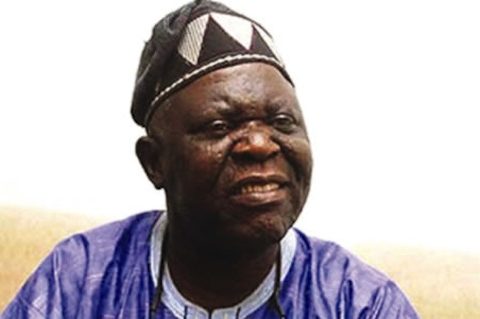The National Universities Commission (NUC) recently announced the unbundling of Mass Communication.
This means that Mass Communication will no longer be a single degree course in Nigerian universities.
Rather, out of the course, the NUC created seven other courses namely; Journalism and media studies, Public relations studies, Advertising, Broadcasting, Film and multi-media studies, Development communication studies and Information and media studies.
According to NUC’s Executive Secretary, Prof. Abubakar Rasheed, who made the development known to journalists in Abuja the decision to unbundle mass communication was to meet present demands.
According to him, the policy will take effect from the 2020, admission year.
The Next Edition spoke to some stakeholders on their views regarding the development.
Dr. Jide Jimoh, HOD, Journalism Dept. Lagos State University (LASU) applauded the development which he said was in line with worldwide trend.
According to him, the new policy will ensure the universities produce well grounded graduates in the various areas of specialisation.
His words: “It’s a great development and it’s in tandem with the trend worldwide. My faculty in LASU actually blazed the trail in 2001 when it started with seven departments but that move was not sustained.
“This is an opportunity to get back on track. It will produce graduates who are well grounded in particular areas of competence.
“Note that they will still take some basic courses generally but now specialize as they go on. It’s a move that should have come earlier but I am glad it has come.
“Note also that faculties are not forced to take all the courses at once. They can choose two or three core areas depending on resources available.”
READ ALSO: NUC Phases Out Mass Communication In Varsities
Mr. Tompra Abarowei, a Media Consultant also lent support to the unbundling of Mass Communication.
He expressed the opinion that Nigerian universities had been lagging behind in that area but, added that it was never too late to join the trend.
“Most of the seven degree programmes are being taught in many universities across the world but, the Nigerian university lagged behind until now. It is not too late for us to catch up with the communication world which is moving at dizzying pace,” he said.
He posited that the development held a lot of advantages.
“Right now there are dozens of universities in Nigeria that can within the shortest possible time establish most of the seven new departments in their existing faculties of social sciences. It will increase the knowledge base of the communication field in the country.
“Students will now have many options to choose from in their areas of strength and competencies. Media organizations as well as other communication outfits can source for workers that fit their individual service professions.
“These youths can go on and establish small businesses in the various fields of specialisation which will in turn impact positively on our economy.
“Unemployment will reduce. A new crop of lecturers will now be introduced into the academic environment of our universities. New physical infrastructures will adorn the landscape of universities that hitherto offered degrees in mass communication.
“The government and owners of private universities now have to provide the funds to properly equip the University departments to produce the required manpower to function effectively in various endeavours in the mass media industry.
“The only adverse effect of the policy is the fact that many graduates of mass6 Communication would have to take refresher courses to be able to fit into the new fields of communication,” Mr. Abarowei said.
For Mr. Muyiwa Akintunde, a Public Relations expert, unbundling of Mass Communication is a development long overdue.
According to him, once the policy takes effect, the era of ‘Jack-of-all-competences’ would be gone.
He said: “It’s a long expected development given that specialisation is one key element that drives the world. The era of a Jack-of-all-competences is gone. And the NUC has only agreed with the submissions of stakeholders in the communication sector to meet the needs of today’s world.
“The unbundling will equip the students better in their areas of specialisation. Being focused is essential in professional development.”
Mr. Toye Fawole, another Media Consultant however has a contrary view.
He described the development as “a wrong educational policy directive.”
His position: “Most other courses have so many areas of specialisation. I’m referring to such courses of study as Law, Medicine, etc. If they want to unbundle Mass Communication, then there is the very urgent need to unbundle Law so that people will now start going for such courses like Property Law, Land Law, Constitutional Law, etc. It would be nice to allow people study Mass Comm. as a course at first degree level and then specialize later.
“Even for first degree in Mass Communication, every degree holder in Mass Communication has an area where he or she specializes. It would then be left to the individual to decide what area he or she wants to pursue.
“Nigeria has been a victim of policy summersault which makes me think that some people are just seeking relevance and may fade out with the policy in no distant future.”
Mr. Ugo Onuoha, a former Managing Director of Champion Newspapers, advocated that the NUC and some supporters of the policy should tread with caution and leave mass communication the way it is now.
He spoke thus: “My take is that Mass Communication teachers /scholars have coveted a faculty of their own and they are at the cusp of getting it.
“Advertising, public relations, photography etc. are merely arms or specialities of mass communication. Are they stand-alone full-fledged depts? Time will tell. Do we expect to see candidates apply to read just PR at undergraduate level soon? I doubt it. As has been explained elsewhere, what happened with the unbundling of Medicine/Surgery, Law, Lab Tech. may still be the lot of unbundled mass communication. We must note that our society is yet to attain an appreciable level of sophistication to accommodate these fancies.
“In addition, Nigeria’s economy is still rudimentary to provide a sufficient playground to give expression to this modernism. It’s still early day with this announcement of unbundling of mass communication programme. We will await how various universities design the course contents of the anticipated departments.
“However my submission for now is that prospective students study mass communication as is, while they specialise in the area that attracts their fancy in their second degrees.
Specialising in narrow fields at this stage of our economic development or lack of development could be a recipe for more unemployed and unemployable fresh graduates. Good idea but let’s make haste slowly.”











